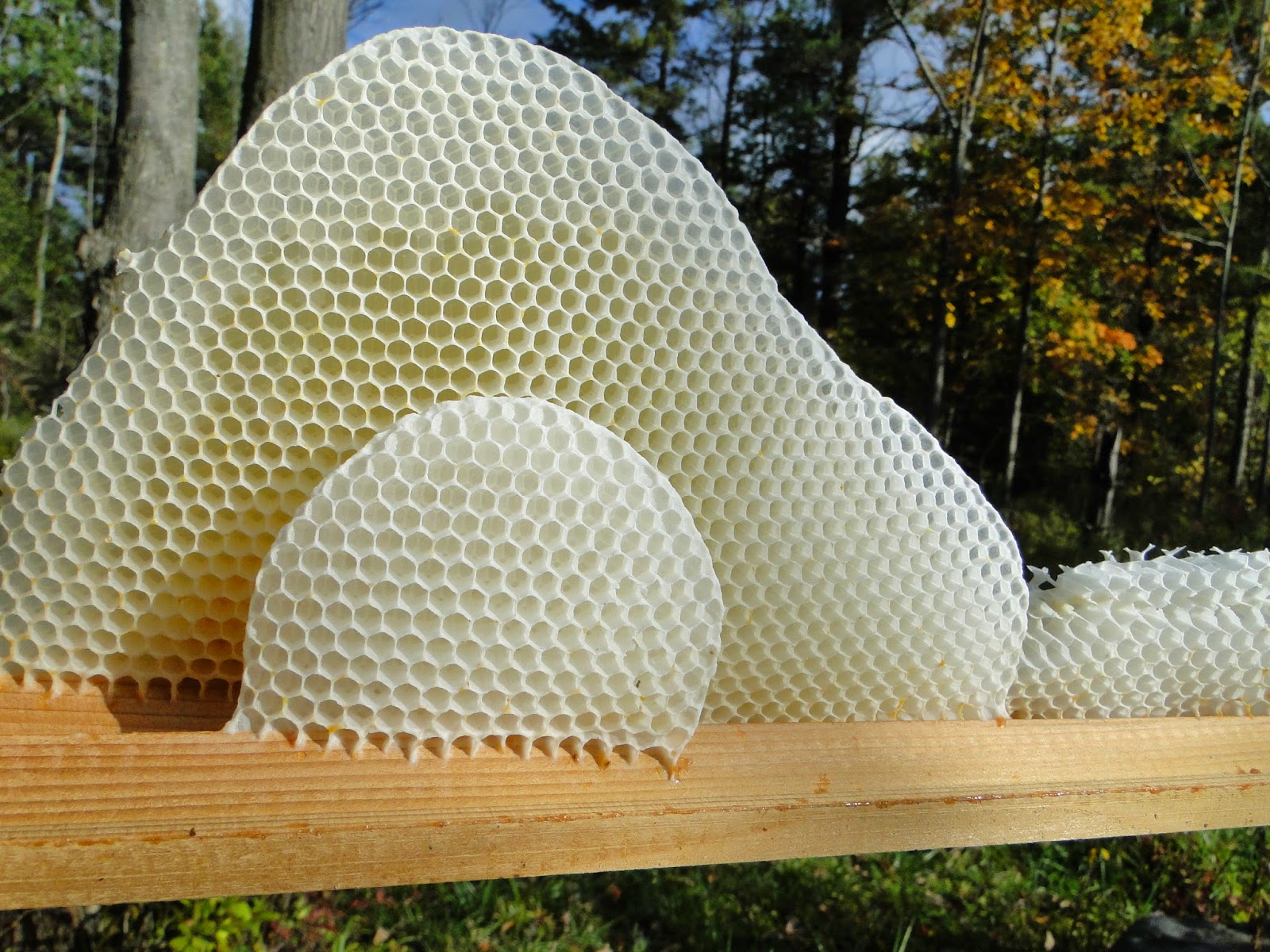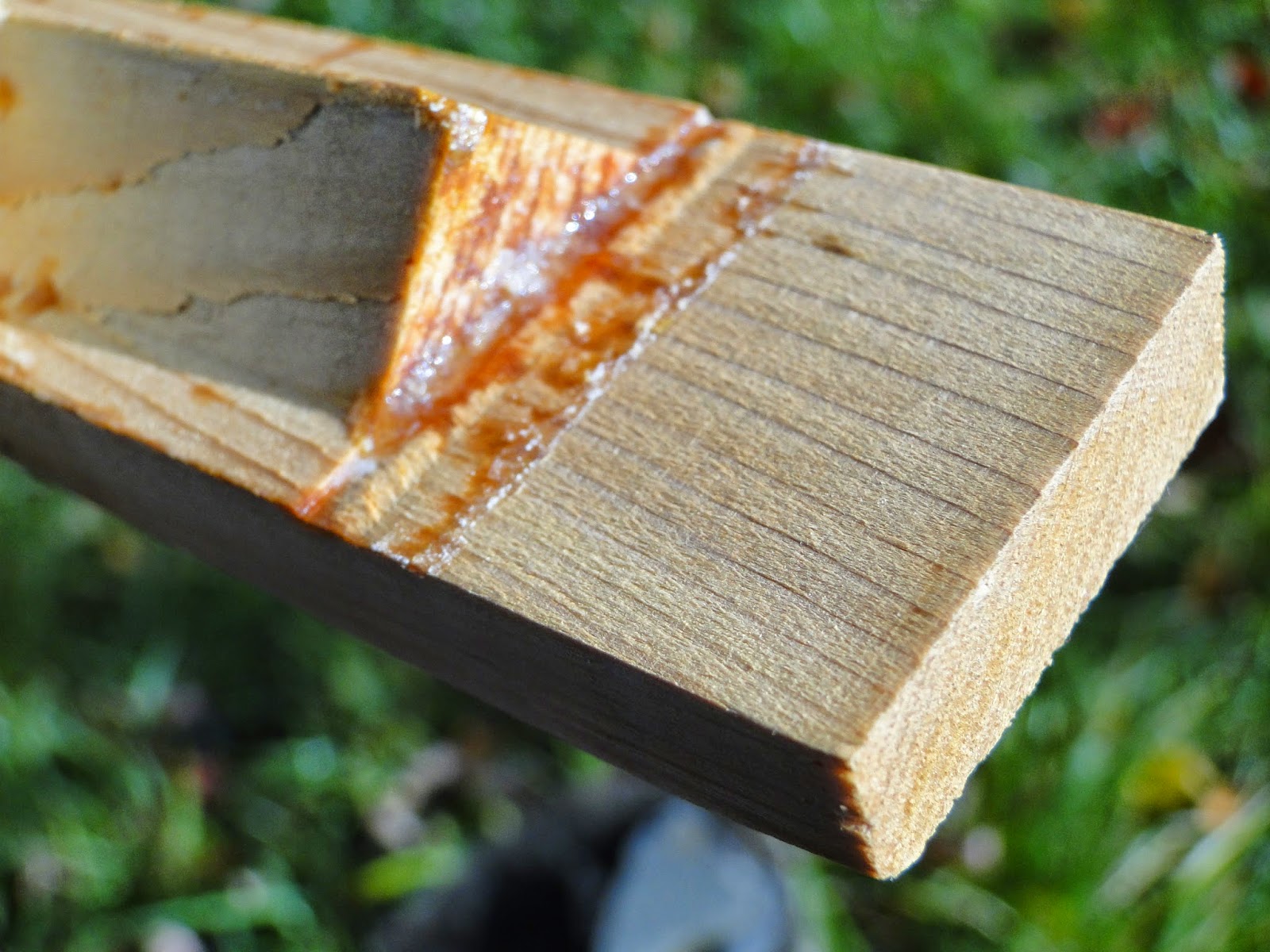Mid to late August, all of a sudden
the hive changed, something shifted.
Only I noticed it at first.
For awhile I thought it was my imagination.
But then it became more apparent that things were definitely different.
And not in a good way.
I couldn't figure it out with any certainty.
What was certain was that the numbers of bees dropped dramatically
and it was as if the hive lost its purpose and joie de vivre.
There weren't a ton of dead bees around,
so I can only hope that somehow the queen and many of her followers
had a healthy, powerful swarm
and in the land of happily-ever-after
they found themselves a location where they can safely survive the winter
and that they managed to build up enough more stores of honey to make it until spring.
It took us awhile to really come to terms with the situation,
and alas, we waited too long.
September came and went and it became more and more apparent
that the hive... the bees left behind, were struggling.
There was no queen. The heart and soul of the hive.
We had been waiting for them to re-queen themselves,
which is what bees will do if their queen dies or swarms.
They make extra-large cells that hang down off the comb and look sort of like peanut shells.
They feed her royal jelly and that plays an important part in the "birth" of a queen.
Here's a queen cell, with a yellow jacket robber next to it.
That queen cell never hatched.
There were about 5 or 6 queen cells, and one appears to have hatched but to no avail.
No new brood in sight.
Here's some old capped brood that never hatched...

Beautiful virgin comb
These are the last combs the bees built out while they were still thriving.

Meant to be filled with honey...
Gorgeous row after row of symmetry.
And the last comb they added anything to...

A combination of hatched brood comb and capped honey here.
It makes me think of the moon and the mountains.
Oh, dear bees.
Oh, dear me.
What can we do?
--------------
Essentially, what's happening right now is that
the bees are dwindling and they're dwindling rapidly,
and there's very little if anything we can do about it at this point in the season.
Most likely nature will take it's course, and the remaining bees will die.
It's such a heavy and deeply sad feeling.
I was totally unprepared for how emotional losing a hive would be.
It shocked me. I just started sobbing.
For such a vibrant, humming, intricate, amazing organism
bustling with tens of thousands of winged workers
to be reduced to next to nothing in a matter of weeks...
How does that happen?
Why?
Is it from my lack of knowledge and management skills?
Is it from this increasingly toxic world we're living in?
Pesticides, herbicides, GMO's?
Bee diseases and pests like varoa mite?
---------
Beekeeping, like many things in life,
is such a fine balance between trying to "control" or influence
that which you can, and letting go of everything else,
including the outcome, even when the outcome is devastating.
It's a constant lesson in hoping for the best, but being prepared for the worst,
and to get back at it
if your heart can handle trying it again.
---------
This experience left me determined to do a better job next season,
even though there are too many variables to know what really went wrong with our hive,
and when/how we could have intervened that may have resulted in a different fate...
Main thoughts on what to do better:
- get hardy local bees who are acclimated to the climate and from a natural apiary.
- manage the hive more frequently.
I won't be so scared to don the white suit and fire up the smoker.
The hands off approach clearly didn't work in this situation.
Next time I won't wait to so long if this happens again --
I'll do my best to re-queen the hive so they can hopefully survive.
I might also try my hand at a "traditional" Langstroth hive and see if I fare any better.
I've heard that the top bar style we're using is the easiest to set up,
but the most challenging to manage.
So, we have to become better managers.
But even increased skill is no guarantee.
Very skilled beekeepers still have losses all of the time.
I don't know how they cope with it.
----------
So, one last chapter:
I got in touch with a local beekeeper
(who is as crazy about her bees as we are about our chickens!)
who graciously offered to help me out.
She had an extra queen nuc with some brood frame,
so we embarked on a last-ditch and highly unlikely effort to re-queen the hive
this late in the season.
It's yet another adventure --
this time with mismatched equipment (her Langstroth frames to my top bars),
some duct tape, some newspaper, and a whole lot of positive thinking and love for the bees.
It started out looking good, but now it's not looking very promising.
For some reason our remaining bees, and maybe the new bees (?)
ate every single last drop of honey in the hive, so there's nothing left!!!
and now I'm kicking myself for harvesting the little bit that I did
(just a little more than a quart!).
There's nothing left to do other than keep feeding them other things
like sugar-syrup and pollen patties
and I can take out the old combs and pour honey into them.
So, it's a sad story.
I still feel busted up about it, and I'm not sure if I'm cut out for beekeeping,
but I'm going to give it another try next season and do my best by the bees.
But here are some beautiful pictures to enjoy.
Spectacular creatures.

sometimes virgin comb reminds me of skin...
like a delicate snakeskin, paper thin.
I'm pretty sure these are pollen stores...
Maybe the bees wrote a message in pollen?
And some honey shots:

Up at the top of this bar you can see some dried green bits
it's actually from lemon balm
which we put under the roof on top of the bars to keep ants away
it worked wonders!
the little bits that got inside gave the honey a slight lemon-mint taste.

propolis... amazing stuff.
sealing cracks and crevices, any little gap.
the bee version of duct tape
or glue
except that it's good medicine, too...
We love you bees.
Queenie #1, may you and your followers survive the winter well, wherever you landed.
--------
Here's hoping for a better 2015 season.
Maybe these hard lessons will be behind us!





















































